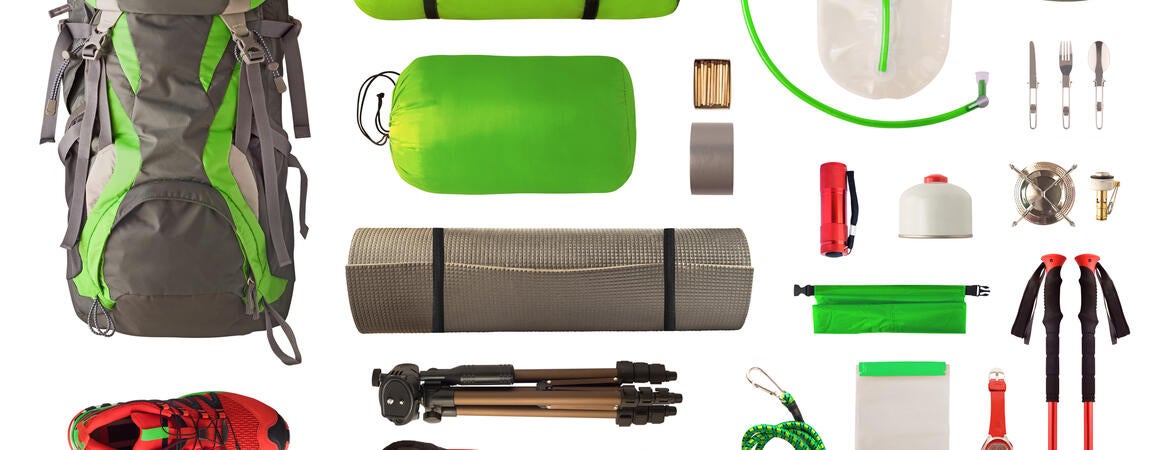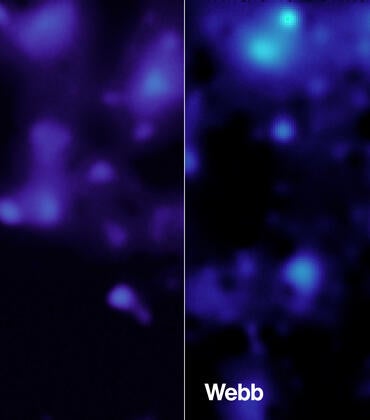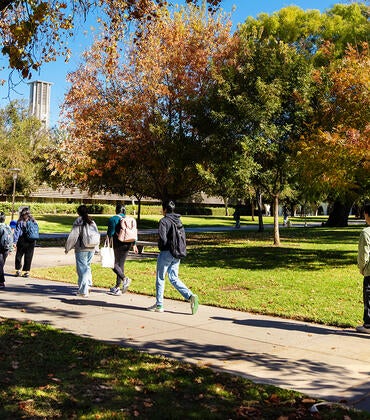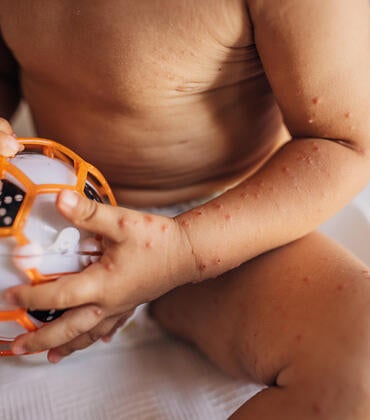
Enjoying time in nature is much more comfortable with the right stuff. Gear such as hiking boots and a warm sleeping bag can spell the difference between a transformative experience and an utterly miserable outing.
But buying outdoor basics can take considerable financial means. For cash-strapped college students, gear can be a major obstacle to participating in experiences like a biology field trip or a geology club excursion.
“It’s a huge startup expense to have to buy all this if it’s your first time going out in the field, especially for historically excluded groups from field research, if you don’t have family that hikes,” says UC Riverside graduate student Catherine Nguyen. “We all know like college is already expensive. All these extra costs in addition to like paying your tuition is so much and continues to exclude these groups.”
At UC Riverside, student groups have a plan to ensure outdoor gear problems will be a thing of the past. They have developed a Student Research Gear Closet to lend items such as hiking boots, gaiters, sunscreen, and backpacks to students planning to participate in field research or other educational outings to places like Natural Reserve System sites. A crowdfunding effort for the project, which has already raised more than $1,500 of its $3,500 goal, will be accepting donations through Nov. 20.
Graduate students at the campus’s Center for Conservation Biology joined forces with members of UCR’s SEEDS (Strategies for Ecology, Education, Diversity and Sustainability) chapter to organize the closet. SEEDS is an undergraduate club associated with the Ecological Society of America that promotes diversity in ecology with field trips and professional development for undergraduates.
To check out gear, students must demonstrate an academic need. Enrollment in a field course, a note from a faculty member, registration in a SEEDS outing, or similar proof is requested. Those interested in borrowing from the gear library should email theseedsucr@gmail.com.
Caryn Iwanaga witnessed the problems caused by inadequate outdoor equipment on a SEEDS trip she helped organize to the NRS’s Santa Cruz Island Reserve. “Most of our undergraduate participants had never been in the field ever before. It was actually a dangerous situation because the terrain was quite treacherous, and some people didn’t have hiking boots or field clothes. We had to climb up these mountains and people just brought their school backpacks and they got a little bit wrecked,” says the gear closet cofounder and recipient of a UCR’s NRS Advancing Inclusivity Internship.
A lack of decent gear can really dampen a student’s experience in the field, says gear closet cofounder Nguyen. “It lowers your feelings of self-efficacy because you’re like, ‘oh, my feet are hurting,’ or ‘oh, all my stuff’s getting ripped up.’ You think you might not be cut out for this field, which is absolutely not true if you just don’t have the right equipment.”
While most UC campuses including Riverside offer recreational outdoor gear rentals, the process can add up to a lot of hassle for what are often single-day field outings. By contrast, “if we can just tell them about the gear closet up front, while they’re signing up for things, and that would make the process a lot easier,” Iwanaga says.
Removing barriers to field opportunities is an issue of educational equity, the organizers say. Field experiences have been shown to improve retention, graduation rates, and academic performance, especially among students from minority backgrounds. Being unable to partake of field opportunities prevents students from acquiring important skills that could lead directly to jobs.
The gear closet will be especially helpful for students trying out field opportunities for the first time, says Nguyen. “They won’t have to invest in something and then find out, oh, I actually don’t like field research. Then they didn’t sink in hundreds of dollars into equipment that they’re never going to touch again.”
The project has been operating for the past two years with gear donated by the San Gorgonio chapter of the Sierra Club. The cash donated by UCR faculty and others have contributed will enable the group to fill in equipment gaps, such as boots in sizes that weren’t donated, and purchase perishable or one-person use items like sunscreen and socks.
For larger items like tents, the project has worked out an arrangement with Outdoor Excursions, UCR’s recreational outdoor gear rental program. Students will be able to check out items from Outdoor Excursions without having to pay out of pocket. Rentals will be covered by the student’s lab, UCR’s Center for Conservation Biology, or possibly even the gear closet.
Says Iwanaga. “We’re really grateful to everyone who donated and can spread the word about this barrier that we all experience at certain points in our careers. It’s been really encouraging to see how much people care about our path and are supporting that in practical ways.”
(Article written by Kathleen Wong/UCNRS)
(Cover image: Lilkin/iStock/Getty)



